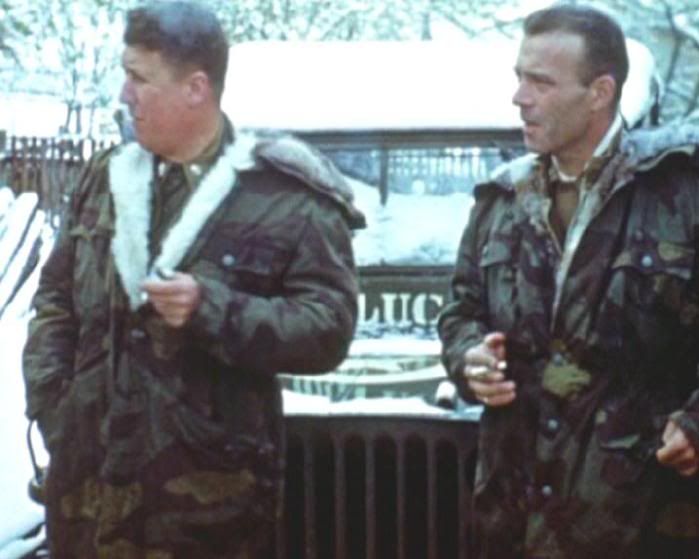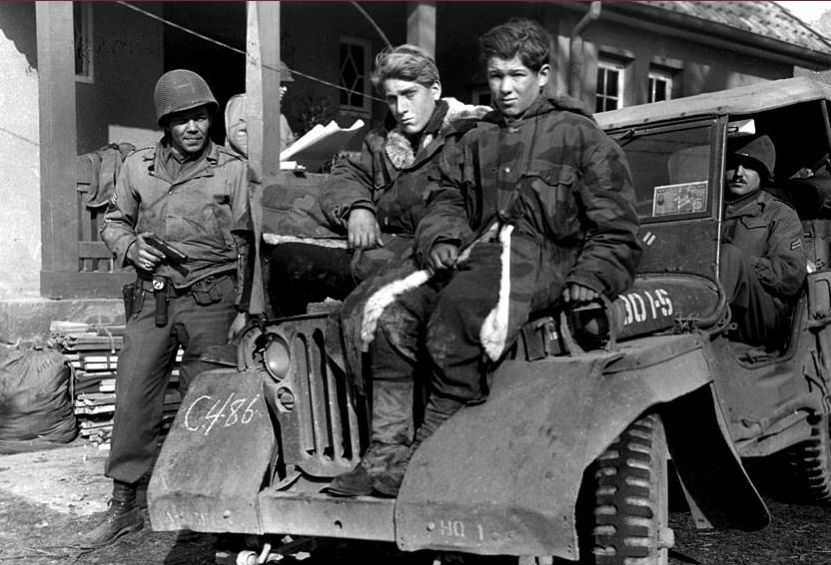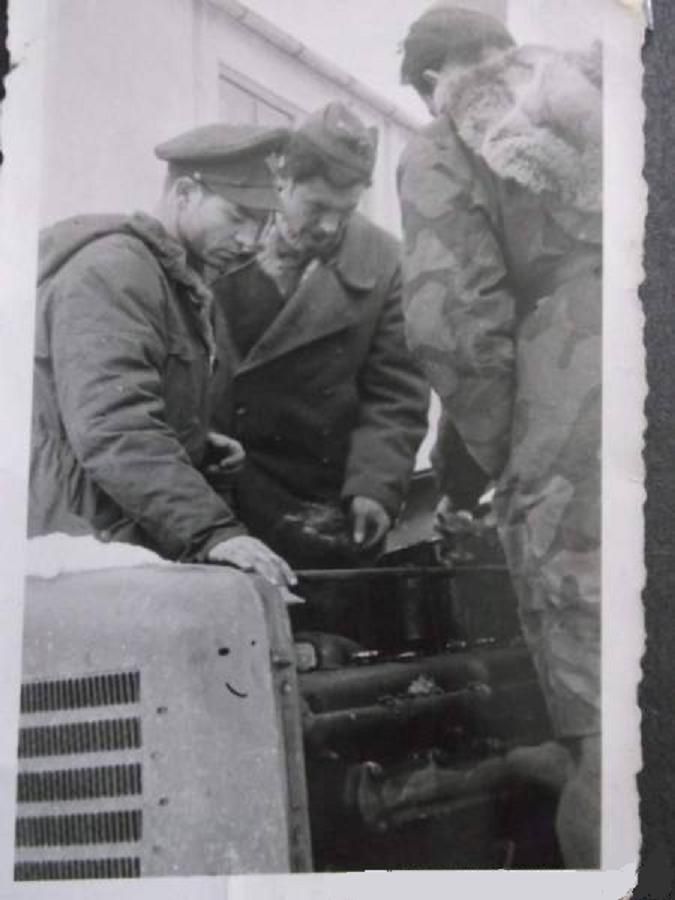-
When you click on links to various merchants on this site and make a purchase, this can result in this site earning a commission. Affiliate programs and affiliations include, but are not limited to, the eBay Partner Network.
You are using an out of date browser. It may not display this or other websites correctly.
You should upgrade or use an alternative browser.
You should upgrade or use an alternative browser.
Long Shearling coats at the Front
- Thread starter m444uk
- Start date
m444uk
Active Member
Doesn't look like the same bike as Andrew's photo to me. Much different frame, tank, and engine configuration. The cylinders are vertical on the DKW, as most bikes are designed, whereas the model has horizontal cylinders such as BMW.
See post 7. Fallschirmjager bike
ties70
Well-Known Member
So @ties70 what happened to your Grandfather?
@Andrew,
that is quite a story...
My Grandfather was a policeman in the mid 30s and decided to join the Wehrmacht to become a career soldier.
His unit was the Infanterie Regiment 90, the "Ratzeburger Jaeger".
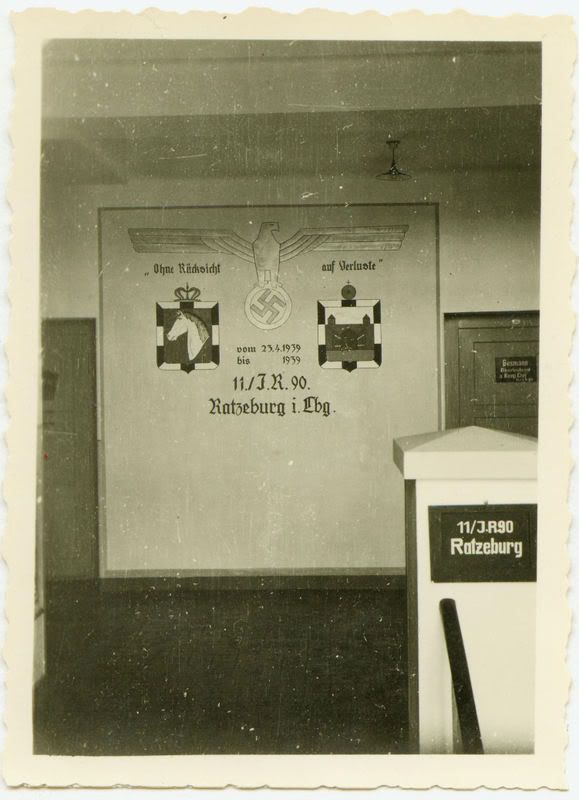
Their motto was: "Regardless of consequences" or "At any sacrifice"
Here he is with members of his squad:
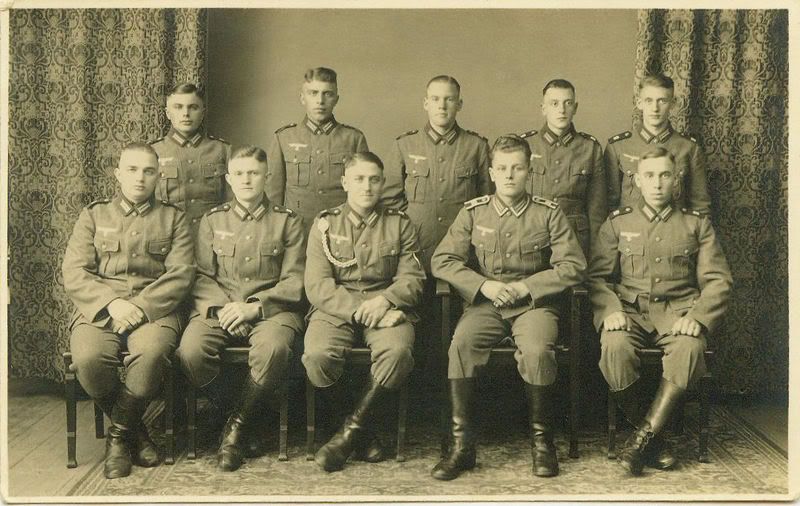
With his platoon:
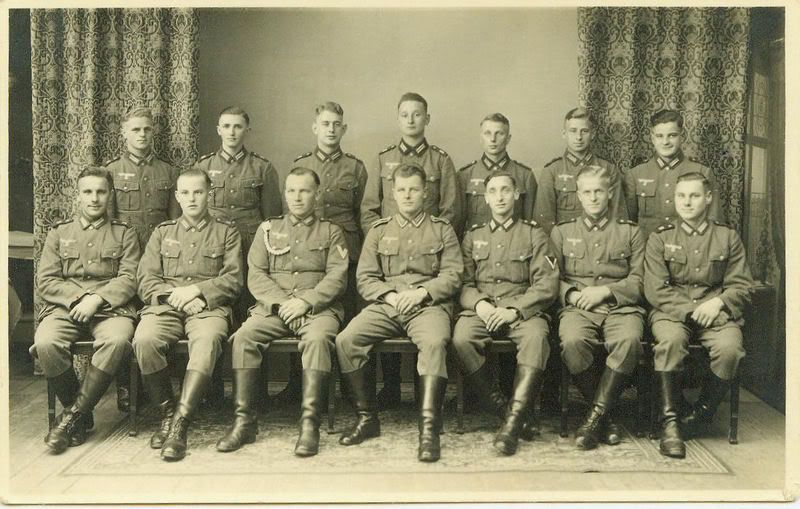
His wedding day parade uniform:
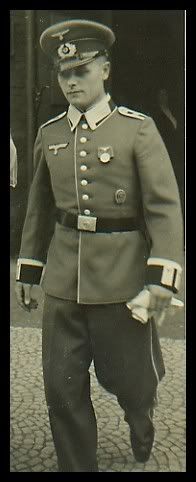
As a career soldier, he was involved in WWII right from the first day.
In fact, he got wounded on the morning of Sept. 1, 1939.
Head shot, right through the helmet...
He woke up in a military hospital near Hamburg a few days later, while my Grandmother was still unaware of his injuries. Waiting for news from the front, my Grandma got the news when a couple of his comrades turned up at Ratzeburg with some flowers and the helmet....
Our brain must be an exciting organ, with a great capacity to shift abilities from one part to another and shortwire functions, because after a couple of weeks, in which he had to learn basic skills like walking and speaking, his health rapidly increased. I can remember that the only things left from that injury were a kind of numbness in one hand and around his mouth.
In early 1940, Grandpa was good as new, working in a quartermaster depot near Hamburg.
Now comes the stupid part:
As a "lifer", still looking for a career, he transferred back to his combat unit. Well, he got promoted several times (up to Hauptfeldwebel), and spent most of his time at the Eastern Front, with all the known horrors: Barbarossa, Stalingrad in 1943, escape from the surrounded city...
He fought and retreated with the Wehrmacht for the next two years and finally became POW in April 1945 in Hungary, and was transferred to Sibiria, where he spent time until January 1950.
When he came back to Germany, he returned to an estranged wife (who had not returned any of his letters from Russia) and two little girls he hardly knew (one of which he had never seen before). He was physically and mentally broken.
Somehow they got their s**t together, but that was something they never spoke about. My mum and her little sister were born in 1950 and 1953.
From all the children and grandchildren it is only me who is interested in this stuff.
Early on I got fascinated by the bullet-holed helmet on the living room cupboard.
Today, it's in our living room. I still keep his military drivers license and his sport badges. I have his letters from the Russian POW camp, and it still is very emotional to read things like "Dear Maria, why don't you write back to me?"
Don't get me wrong.
This is not meant to be a sentimental "heroes story" to justify the things done by German soldiers or to tell you "It wasn't easy for them, too." I can't even justify done the stuff possibly done by my Grandfather, which might have been totally gruesome, at least it was terrible enough for him not to speak about it.
In the end, they probably got what they deserved.
But despite this, he was a human being, with good and bad sides, and he was the best Grandpa I could imagine....
Best regards,
Ties
m444uk
Active Member
Luftwaffe shearling. I've noticed that as well as aircrew, some the Luftwaffe ground units on the eastern front had these. Perhaps involved with reconnaissance.
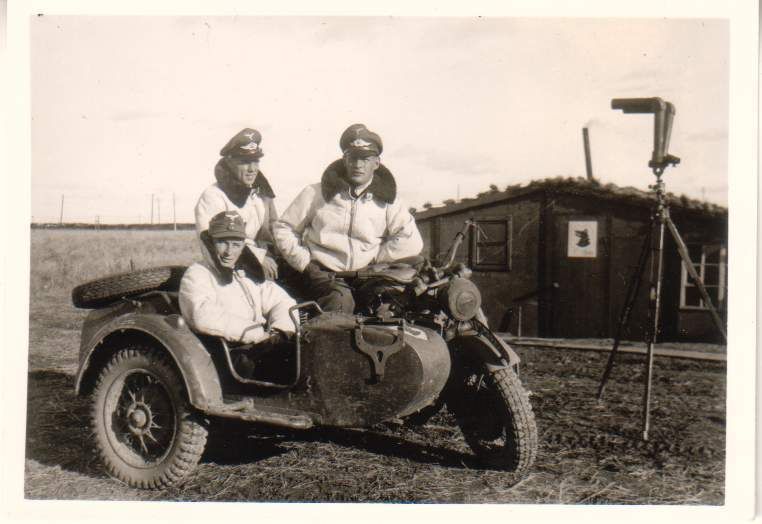
Watched the 1993 German film 'Stalingrad' last night for the first time. Well worth viewing.
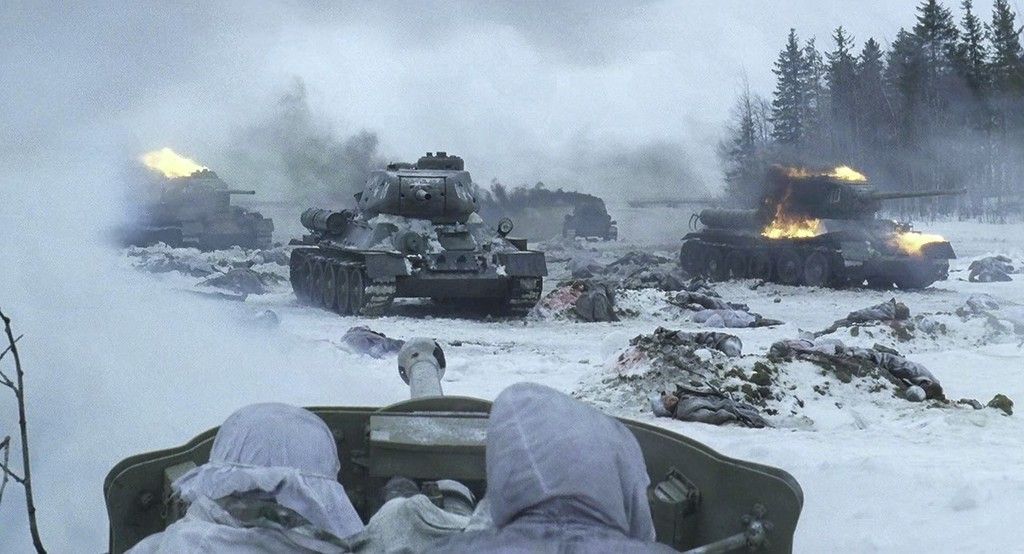
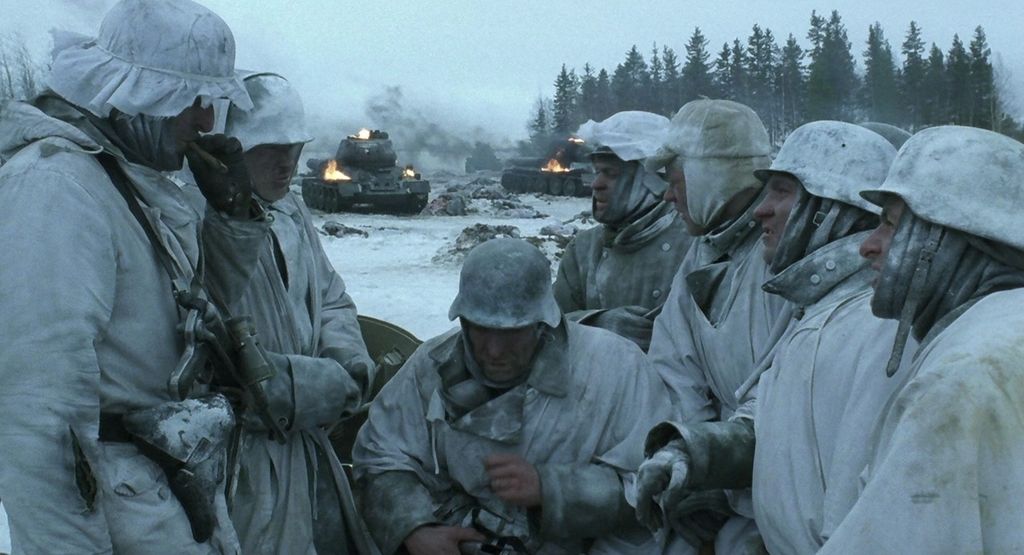
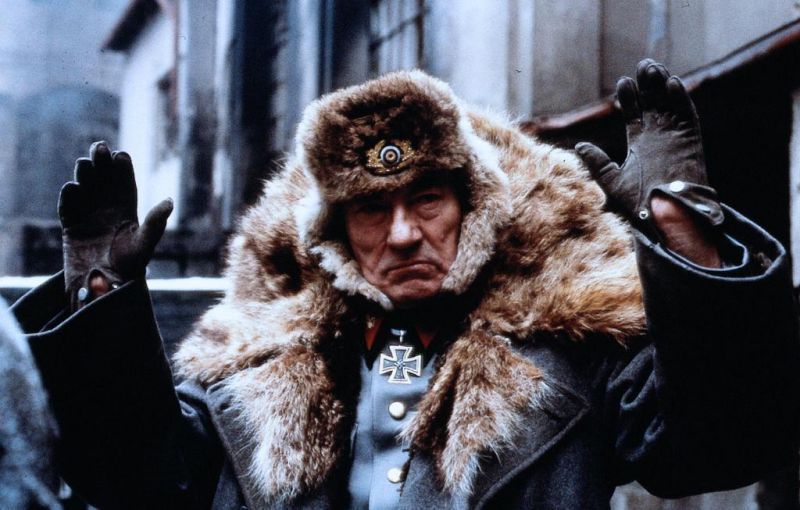
One thing you don't get though is the wider picture. Axis causalities included 200,000 Romanians, 130,000 Italians, and 120,000 Hungarians killed, wounded or captured. That's as many, if not more, than German loses. Yet they have been written out of German history.

Watched the 1993 German film 'Stalingrad' last night for the first time. Well worth viewing.



One thing you don't get though is the wider picture. Axis causalities included 200,000 Romanians, 130,000 Italians, and 120,000 Hungarians killed, wounded or captured. That's as many, if not more, than German loses. Yet they have been written out of German history.
Richard Cuellar
New Member
Thank you for sharing your grandfathers story. Regardless of what your judgements are of the German Military during WWII, I think that stories from all sides of the conflict are beneficial and of historical interest.@Andrew,
that is quite a story...
My Grandfather was a policeman in the mid 30s and decided to join the Wehrmacht to become a career soldier.
His unit was the Infanterie Regiment 90, the "Ratzeburger Jaeger".

Their motto was: "Regardless of consequences" or "At any sacrifice"
Here he is with members of his squad:

With his platoon:

His wedding day parade uniform:

As a career soldier, he was involved in WWII right from the first day.
In fact, he got wounded on the morning of Sept. 1, 1939.
Head shot, right through the helmet...
He woke up in a military hospital near Hamburg a few days later, while my Grandmother was still unaware of his injuries. Waiting for news from the front, my Grandma got the news when a couple of his comrades turned up at Ratzeburg with some flowers and the helmet....
Our brain must be an exciting organ, with a great capacity to shift abilities from one part to another and shortwire functions, because after a couple of weeks, in which he had to learn basic skills like walking and speaking, his health rapidly increased. I can remember that the only things left from that injury were a kind of numbness in one hand and around his mouth.
In early 1940, Grandpa was good as new, working in a quartermaster depot near Hamburg.
Now comes the stupid part:
As a "lifer", still looking for a career, he transferred back to his combat unit. Well, he got promoted several times (up to Hauptfeldwebel), and spent most of his time at the Eastern Front, with all the known horrors: Barbarossa, Stalingrad in 1943, escape from the surrounded city...
He fought and retreated with the Wehrmacht for the next two years and finally became POW in April 1945 in Hungary, and was transferred to Sibiria, where he spent time until January 1950.
When he came back to Germany, he returned to an estranged wife (who had not returned any of his letters from Russia) and two little girls he hardly knew (one of which he had never seen before). He was physically and mentally broken.
Somehow they got their s**t together, but that was something they never spoke about. My mum and her little sister were born in 1950 and 1953.
From all the children and grandchildren it is only me who is interested in this stuff.
Early on I got fascinated by the bullet-holed helmet on the living room cupboard.
Today, it's in our living room. I still keep his military drivers license and his sport badges. I have his letters from the Russian POW camp, and it still is very emotional to read things like "Dear Maria, why don't you write back to me?"
Don't get me wrong.
This is not meant to be a sentimental "heroes story" to justify the things done by German soldiers or to tell you "It wasn't easy for them, too." I can't even justify done the stuff possibly done by my Grandfather, which might have been totally gruesome, at least it was terrible enough for him not to speak about it.
In the end, they probably got what they deserved.
But despite this, he was a human being, with good and bad sides, and he was the best Grandpa I could imagine....
Best regards,
Ties
Thomas Koehle
Well-Known Member
the dispatch rider in leather cloths looks like he is wearing Italian submarine equipment - as far as I have been reading after the Italians split up with Germany there was a lot of Italian gear leftover in german possession - the leather gear was then issued to tank crews so to say as kind of flame resistant protection gear
Peter Graham
Well-Known Member
I don't think the parkas were Italian made. The Germans got hold of loads of Italian camo material and made all sorts of uniform items from it. That first shot has the look of a movie still. Would I be right ?

